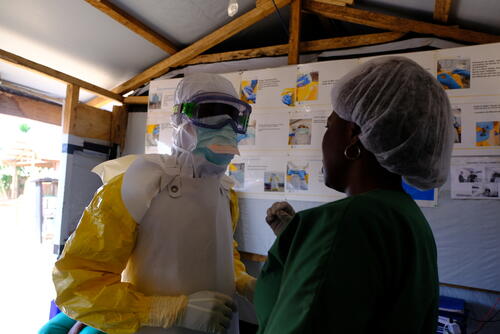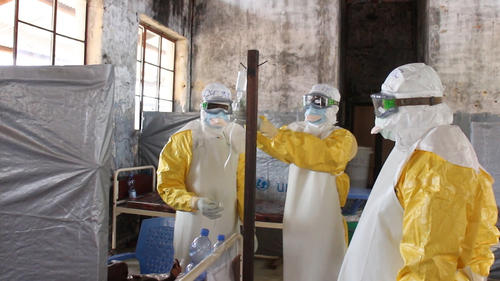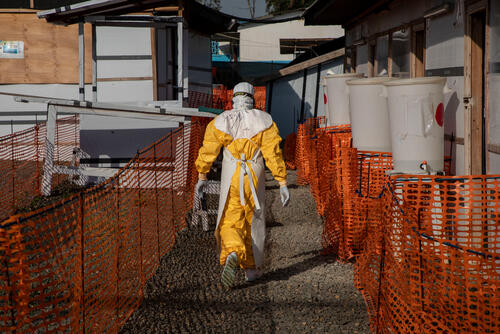On 10 April 2020, a new case of Ebola was confirmed in the city of Beni, North-Kivu, northeastern Democratic Republic of Congo. The news came after a long interval without new confirmed cases: 52 days had passed since the notification of the previous confirmed case and 40 days had elapsed since the last patient was declared free of Ebola.
Only two days remained before the expected declaration of the end of the outbreak (i.e. 42 days after the clearance of the last confirmed case) and the new confirmed diagnosis erased any expectation of such declaration.
Unclear transmission of new case
It is still unclear how the patient confirmed positive on 10 April contracted the virus: he was diagnosed after his death, had no known contacts with previous Ebola patients and was not a former survivor of the virus who might have relapsed. Since the notification of this new case, five more Ebola cases have been confirmed in Beni, reaching a total of six new confirmed cases since 10 April.
These new cases generated frustration and a certain level of suspicion within the community, and protests were held in the city of Beni, highlighting the need for strong communication efforts and community engagement.
Flare-ups of disease still possible
Although the end of the outbreak was in sight, flare-ups are likely according to World Health Organization,<a href="https://www.who.int/news-room/detail/06-03-2020-end-in-sight-but-flare-ups-likely-in-the-ebola-outbreak-in-the-democratic-republic-of-the-congo">World Health Organization</a> which highlights four main reasons why cases could resurge in DRC:
Ebola transmission might have gone undetected due to gaps in the surveillance system or in areas where access for humanitarian organisations is limited due to the complex security environment.
- The Ebola virus can persist in used needles, syringes or vials for several weeks.
- The Ebola virus can persist in the body fluids of survivors for many months, and can be transmitted for a long time after a patient’s recovery (for example via sexual transmission or breastmilk), or in rare cases, a convalescent patient can relapse - as observed already during this outbreak.
- The Ebola virus may be present in an animal reservoir in the region, and there is always a risk of a new introduction to humans.
Flare-ups of new cases were observed towards the end of Ebola outbreak that affected West-Africa from 2014-2016.
As of 19 April 2020, 3,461 confirmed and probable cases were notified, and 2,279 deaths have occurred as a result of the outbreak.<a href="https://www.afro.who.int/health-topics/disease-outbreaks/outbreaks-and-other-emergencies-updates">WHO Afro region</a>






